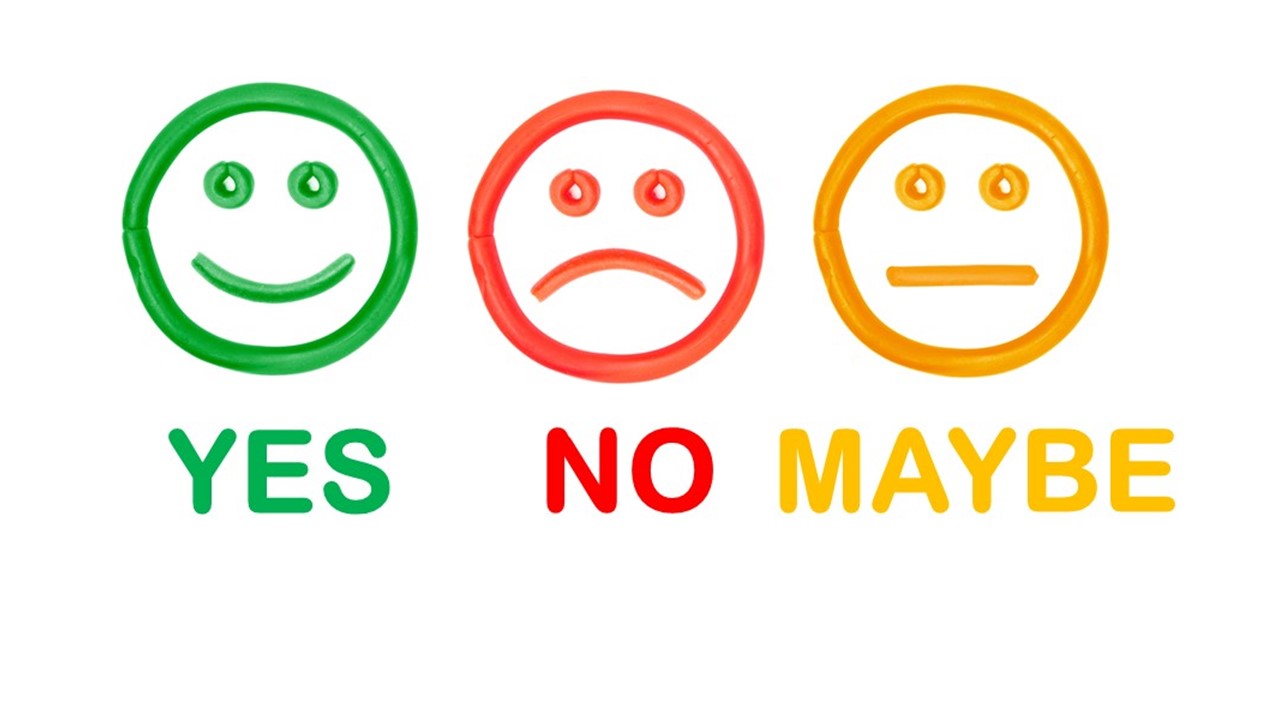20+ Effective Focus Group Questions to Gain In-Depth Customer Insights
A focus group is a critical method that helps businesses understand their customers’ insights better and gain helpful feedback for their companies. Asking the right focus group questions is essential for the success of their market research, giving them a multi-participant discussion about the products and services.
Effective focus group questions will help businesses interact with customers more closely and drive the talks towards their wanted outcome. Understanding the importance of it for any company, we have this article that is about to cover what you need to know about focus group questions and 20+ effective focus group questions to gain in-depth customer mindsets.
What is a Focus Group?
Before the ultimate guide on creating focus group questions, let’s dive into the definition of a focus group.
A focus group is a small group of people who are carefully chosen to contribute to open discussion for market researches. The hosting organization selects this group with an attempt to represent the larger population they are about to target.
The subjects the group focus on are perhaps new products, feature updates, or other topics of interest to discover the insights and reactions of the general population. Among those participants, one crucial position is the moderator. Who taking charge of the moderator has to ensure legitimate results and reduce bias in the discussions. The term Focus Group was named in 1991 by a marketing and psychological expert Ernest Dichter.
In general, the term is simply defined as meetings held in a limited group of people to discuss. Some of the focus group’s features are:
- The focus group set up the meetings in qualitative research.
- The number of participants ranges from 6 to 10, usually 8.
- Their missions are exploring, discussing a topic, sharing their feedbacks, attitudes, knowledge, and insights about this topic at hand.
- Participants within the meeting are free to share their opinions and are encouraged to persuade other participants.
- The mediator writes down the important notes about the discussion and the different opinions of the group contributors.
- The participant-selecting process has to be made carefully since their opinions and mindsets will influence the research results.
There is more than one method on market research, but the Focus group method is considered the most beneficial one thanks to its distinct advantages over others. They include the role of the moderator in communicating with members and balancing the flexibility to move the discussion. As a result, insights, and opinions can be more meaningful than ever.
One common mistake when understanding the key role of the focus group is attempting to reach a consensus or agreement on the topic. Otherwise, it targets identifying and understanding customer insights of a brand, product, or service.
Read more:
- The 7 Artificial Scarcity Creating Methods
- 5 Marketing Lessons from Cognitive Psychology
- How to do Google Maps Marketing?
- What is Product Branding?
Why are Focus Groups important to Market Research?
Still, there are many methods of market research targets discuss a topic in detail and collect in-depth opinions. However, the focus group method is one of the minorities that are particularly valuable for marketers in our digital age. It is important since marketers can easily get a more in-depth insight into consumer interests, attitudes, motivations, and perceptions.
In turn, they can withdraw the way and the reasons leading to their behaviors and reactions. Nowadays, focus groups are commonly used by small businesses and high-volume brands. For instance, Disney, Twitter, and Starbucks rely on focus groups to promote their products and raise the total market share.
Focus groups can be used in most cases. Here are the five most common situations when they are used:
- When the businesses are about to launch a new product or campaign
- When the businesses need to evaluate opinions about a current service or website changes
- When the businesses need to adjust the focus of an advertising strategy
- When the businesses need to understand a particular audience segment or user persona
- When the businesses are attempting to test a prototype
While the typical survey research provides the raw data to validate or invalidate assumptions, focus group research works well in giving a greater depth of inquiry generating much more nuanced insights into consumer’s reactions. In particular, it results in valuable and layered feedbacks that you hardly obtain via quantitative research methods.
In case you are looking for the way your customer’s opinions are created and expressed in a collective context, focus groups can also help.

The importance and advantages of focus groups are claimed by many marketing experts. As Janet Salmons, principal consultant for Vision2Lead and author of the book Doing Qualitative Research Online, shared: “Focus groups are beneficial when you are interested in how participants respond not only to the product or service in question but also to each other and the mood of the group as a whole.”
Nonetheless, it doesn’t mean you just open the meeting and wait for the positive results. To benefit from focus groups, you need to spend more time and effort asking quality questions. The stronger focus group questions are, the more useful information will be gathered. Keep in mind to raise well-thought-out focus group questions that are clear and free of bias to reach the research objective. Only when you do so can information be reflective of customers’ thoughts and feelings.
Unfortunately, doing so is not that easy. When conducting a focus group and open a discussion, you need to consider the following drawbacks:
- The high cost and much time spending on arranging and holding
- Group members are sometimes not comfortable enough to share opinions since they are not anonymous
- Some moderators can open bias though they have no intention
- Quality of information can be undermined once the questions are poorly worded, leading, or ambiguous
- Loud, opinionated participants can distort the results
Anyway, the advantages of focus groups outweigh its cons. Let’s take a look at more detail about this effective market-research method.
3 Main Types of Focus Group Questions
There are a variety of types of focus group questions that can be asked by participants within the normal market research discussion. Here we bring about the three main categories of focus group questions.
Introductory Questions
As stated by Salmons, Introductory questions are those asked at the beginning of a focus group meeting, they should “establish a safe space within the group.” Indeed, they are suggested to be related to something eliciting stories about a common experience. Introductory queries are responsible for stimulating the members to interact with others and quickly promote a sense of community.

Being also known as Engagement questions, they are usually applied with a purpose to push participants talking about the research topics. Since they are put right after the group meets, such questions should be general and easy to answer. They can be:
- Hello, and welcome to our focus group meeting about A today. How did you travel here? Are there any funny stories you meet along the way? About me, I …
- Thanks for coming here today. I’m glad that you all attend though it is the weekend. I’m about to go on a hike tomorrow. What about you? What will you do over the weekend?
- Our topic is about A. When did you last buy a product or service from this range?
- About A, what is your favorite brand? How often do you buy a product from them?
Exploration Questions
As the name says, Exploration queries are those raised to dig deeper into the particular research topic and evoke answers from participants in detail. Their mission is discovering the insights, needs, demands, and concerns of members via their opinions and responses. Here are such important questions that they should be designed carefully to draw out as much data from participants as possible.
They can include:
- When reminding yourself of A, what feelings or associations first come to your mind?
- Is there anything you want to change about A? If yes, what will they be?
- Tell us a story of when and how you last used A
- In comparing A and B, what will you choose? Why?
- What are the three reasons for forcing you to buy A?
Note: One optional type of focus group question is follow-up questions being put after primary exploration questions being asked. Though they are not compulsory, follow-up queries still take charge of digging deeper, gathering more data about an interesting assertion, clarifying any points that are not clear, or inviting other members to share their comments and opinions on the subject.
Exit Questions
After going deep into the research topic, participants often come right to the Exit questions. They are designed to end up a focus group discussion, wrap up all important things mentioned during the conversations, and make sure nothing has been left undiscussed. Easily put, exit questions have to be asked to ensure all aspects of the topic have been covered completely.
Some of them may be:
- Is there anything left you would like to say about A?
- Would you like to discuss other points about this subject?
- Is there anything we miss during the talk? Is there anything you feel important, but we didn’t mention?
- Do you think we also need to cover different relevant topics, but we did not?
How to Write Good Focus Group Questions
Now it’s time to apply that knowledge to your businesses. But first, let’s look at how to write good focus group questions through the following advice. They will make sure that you create questions that bring about qualitative information and much value to you.
Start with The End Goals in Mind
First and foremost, you need to start with the end goal and work backward. That means clarifying your objectives before the meeting by raising the question, “What are you hoping to discover by conducting a focus group?”.
You should identify in mind what you will get as a result of the discussion and predict the sort of effects you would like to achieve at the end of the session. Then, remember to use those insights and brainstorm queries that work well to extract the kind of data you need the most.
Be Precise with Your Questions
One key to being successful in focus group questions is making your group members understand your points. So, it is extremely important to keep your questions short, straightforward, and unambiguous. What you ask them must be immediately clear. A question, especially one from the exploration group, should have just one or two parts. Those with multiple parts can be understood in various ways. The ways they comprehend can directly devote to the success of the discussion.
For example, if they understand in the wrong way, you will have to raise more questions to drive them in the right direction. The lengthy questions will then possibly result in confusion among members. By making them as simple as possible, you will save time and gain higher quality feedback.

Don’t Ask Unnecessary Questions
Remember that you cannot lengthen the focus group meeting for the whole day. You just have limited time with your group members, so the number of questions asked must be limited to. The list of focus group questions should range from 8 to 12 in total to maximize quality.
To get the most value, let’s write down what you are about to ask first as a script. Then, go through your script and get rid of any question that you feel does not deserve to be there. Make every question count and delete those that are not about to bring about new data or answered via other means.
Test Your List of Questions
Finally, before applying the list of your questions to the real meeting, make sure you test them by running a pilot. It is because your questions may look great on the draft but possibly fail to deliver in practice. What’s more, you won’t look for recognizing that this is the case in the live focus group setting, right?
Once those wrong questions are used, the result can be very negative. So, keep in mind to assemble a few individuals before and trial the question list with them. When using the pilot, if there are any questions resulting in the confused inclusions or that they are measured to be ambiguous or redundant, do not hesitate but find this out in the pilot run and adjust to gain the best questions.
24+ Best Examples of Focus Group Question
Examples of Introductory Questions
As we have mentioned, these questions are often open-ended, which is to set the tone for the focus group. So, remember to ask those questions to steer and drive the discussion in the direction you want it to go. Let’s look at some samples of it:
-
Hello, today we are going to talk about A. So, what do you feel about it when it comes to your mind?
-
Have you heard of A before? If yes, can you tell us something you know about it? And what are the things you want to know more about A?
-
Can you tell a word or phrase you think of when remembering about A?
Then, it’s time that follow-up questions are used to dig deeper into the topics. So, choose the topics you want to discuss the most and expand from them. Be sure to keep them short and comprehensible. Now, we will give you more examples of each type of follow-up question.
Examples of Competitor Questions
This is when you can ask direct questions about your rivals within the market to figure out what your company can do better to beat them out or what your strengths are to be promoted. When answering those questions, your customers will surely reveal what they like and dislike. You will then provide the best service for the market. The key target of this type of focus group question is focusing on the decision making process for purchasing as well as the reasons why customers buy:
-
If you intend to buy A, what company or brand will come to your mind? (When asking about competitors, try to drive the answer in a certain way that will force participants to disclose the points making your company the first in the consumer’s mind if yours is not the first option).
-
What brand do you assume the biggest competitor to our product? Why do you think so? (Again, customers are those deciding the success of your business. So, ask them about the biggest competitor of you since this name can not be the one you choose or the one you never list on your radar as a major rival).
-
When using our competitor’s product, what strengths do they have over our company? (Being practical will work! Let’s get more specific insight into their mindsets to know what your competitors are doing better, which can help you enhance your products in the future).

Examples of Improvements & Dissatisfaction Questions
To adjust your products in the right direction and gather more productive data, you have to find out what your consumers are not satisfied with currently. Ask them to the root cause of any problems you are suffering from. What’s more, the features they are unhappy with are the reasons why your customers do not choose your products but your rival’s ones.
-
When using A, what are the biggest issues or problems you have to suffer from? (Ask them about the specific issues to know about the biggest weakness of you and prioritize that concern).
-
Are those issues serious and significant? How significant are they? (After knowing the issues, you need to figure out how crucial they are and if you need to solve or address them immediately or not?
-
In case the problem is too significant to you and you do not want to use it but the sellers persuade you to buy it, what will you tell them as a key reason? ( Now, it’s time to know more about the subconscious response that your customer might have towards your product. By asking this question, your participants will be forced to brainstorm the answer).
Examples of Positive aspects of the product Questions
There are many cases when businesses make the wrong changes that customers do not expect. So, that’s why you need to ask questions about the positive aspects of the product. That means asking what features your product is doing better than your competitors. In this way, you will not only know what will be important and beneficial to the product and consumer but also avoid changing the aspects that customers are enjoying.

-
What are the biggest advantages of A? (This question is a must-have one to know about your customer’s insight into what you are doing well and what areas of your product are functioning better than rivals).
-
Why do you choose this product over others? (Being asked about the buying motivates, group members will give you the root causes of their decision, whether it’s about features, brand name, customer service, or something else).
-
Can you tell us the key values leading you to the purchasing decision of these products? (Here, you go out of the features or uses to know why your consumers have a trust on your brand).
Examples of Specific feature information Questions
You will now have a chance to know more about the specifics of your products. The more information you know about this area, the better you make specific improvement changes to your product after the end of discussing. That is, asking your customers about what exactly works well or doesn’t work well in this product or what they will do differently with these features if they were in charge.
-
Let’s say you have a chance to develop our product more, what feature will you choose to change? Why? (Ask about the aspects of your product that is useful already but need renovating).
-
Can you tell us a feature you want to add and one you want to delete from this product if you could? Why do you do so? (Gain more information about what your customers think is lacking or unnecessary in your product and the reason why as well).
-
In your opinion, what are the better aspects of our product in comparison with competitors?
Examples of Overall uses and Opinion Questions
Those questions are not usually used, which are more pointed than overall exit questions. If you are not sure whether there may be a general feeling from customers about you that you have not touched. That’s an excellent way to add detailed questions and know a general feel from your member, making them use or not use your products.
-
Is your opinion of this product different from that of the past three years? If yes, How has it changed? (They will give a brief timeline telling the shifts and changes in the business that affected their attitudes and beliefs).
-
When buying A, what did you expect? (Knowing their expectations in advance means you can fulfill them before any complaint)
Examples of Probing Questions
It is the last type of follow-up question which is asking your participants to expand on their answers.
-
Can you please clarify the reason why you decided not to use A anymore?
-
You have just shared you would likely choose our product if you have the second chance, why is that?
Examples of Closed-ended Questions
Before reaching the end of the meeting, you can use this type of question to avoid existing group bias since they often are yes/no questions, forcing every member to answer. Though you might want to gain as many detailed questions as possible, those face-value queries still work if you are going to quantify data since they allow you to count specific answers and apply statistical techniques.

-
If you could, will you suggest your friends buy A?
-
Would you agree with the phrase “I’m satisfied with the performance of this product”?
Examples of Exit Questions
Now, it’s time for the exit questions to make sure nothing has been left undiscussed. Those are to invite participants to fill any holes in the conversation to avoid any lingering doubts.
-
Do you want to add anything else to the talk about A today?
-
Is there any topic or aspect of this product that has not been mentioned?
-
While talking about A at length, what about B? Does anyone want to share about B?
-
Is there anyone else who wants to expand an opinion that has been said before by another group participant?
Related posts:
- 10 Trust Badges That Can Increase Your Conversion Rate
- Product Strategy: How to ensure a product’s success?
- How to implement Proximity Marketing
- What is a Go To Market strategy?
- Advanced Content Promotion Strategies
Conclusion
So, the questions asked in a focus group are undeniably important. How they are created will directly devote to the results of your products as well as the whole company. Remember to prompt your customers more often to get the most valuable information from them and keep them feel as comfortable as possible. By doing so, you will have more chances to gain a wealth of feedback and information to analyze.
Take what we wrote as a suggestion, apply the tips above to your businesses, and focus on setting up strong questions, you will surely see the positive results of the smooth discussion.
Hopefully, you will find something helpful in our post today, which will contribute a bit to your business’s success. If there is still something you don’t understand about the focus group questions or want to know more about it, do not hesitate to ask in the comment section. We will reply to you soon. Thank you!
New Posts






